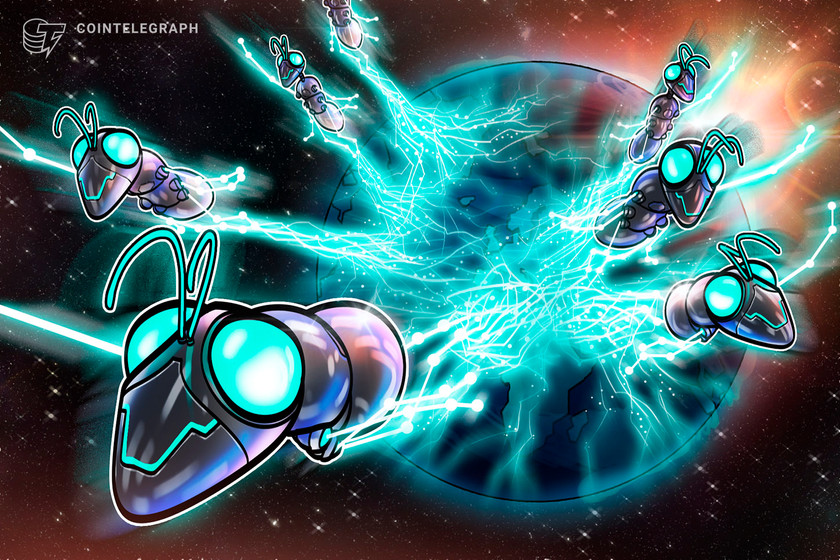Cosmos launches Stargate, paving the way for interoperable DeFi applications
After months of development, the Cosmos (ATOM) project has launched the Stargate update, which includes the highly anticipated Inter-Blockchain Communication protocol, or IBC.
Announced on Thursday, the Stargate upgrade includes a series of improvements to the Cosmos protocol and its Software Development Kit.
The most important of Stargate’s features is IBC, the interoperability layer for Cosmos blockchains. The protocol is one of the key elements of the Cosmos vision, allowing for effortless interoperability between Cosmos SDK blockchains and other blockchain protocols. IBC allows bridging tokens and arbitrary data between all blockchains it supports, primarily those built with the Cosmos SDK. Other blockchains can also be supported, but they require case-by-case implementations.
There are a number of projects that have been built with the Cosmos SDK in the past, including Binance Chain, Kava, Terra and Secret. Before the introduction of IBC, the networks were siloed and the individual projects had to create their own bridges to connect to the wider blockchain ecosystem. Brian Kerr, CEO and co-founder of Kava, told Cointelegraph that the project spent “years of developer time and millions of dollars in investment to construct the custom bridges that exist today,” notably for the Binance ecosystem.
The launch of IBC would “accelerate the rate at which Kava can add bridges to other Cosmos-SDK chains, offer its services, and use their assets as collateral,” Kerr explained.
While IBC also supports interoperability with blockchains built on Substrate, the blockchain framework championed by Polkadot, other blockchains outside of these ecosystems will remain somewhat difficult to integrate within Cosmos.
Stargate also carries a host of other performance improvements. These include support for the Protobuf serialisation format, a more efficient mechanism for streaming data; State Sync, which allows nodes to synchronize with a Cosmos blockchain in less than 30 minutes; Automatic upgrades for the blockchains built on the SDK and improved light client security that improves IBC connection guarantees. Stargate has been in development for months, with Cosmos issuing a dedicated bug bounty to ensure its safety.
IBC is currently live on the Cosmos hub, home to its ATOM token. The hub is an important component of the Cosmos ecosystem, allowing its blockchains to communicate with each other without having to establish dedicated connections. The communication protocol is available on the Cosmos SDK, meaning that it is up to each team to roll the implementation out.
A number of DeFi applications within Cosmos would benefit from easier interoperability. With IBC, the blockchains can connect to most major DeFi ecosystems outside of Ethereum, which notably includes Binance Chain. Kerr said that “Kava is designed as an Apple store,” allowing only vetted projects to build on its platform. “While this makes Kava one of the most trusted platforms for enterprises seeking DeFi solutions, it does limit the rate at which developers can quickly deploy code and iterate on ideas,” Kerr noted. Ethereum and Binance Smart Chain provide an environment with less oversight, which makes both of them valid options for building DeFi, according to Kerr.
Other DeFi options on Cosmos include Secret Network, a privacy-centric blockchain for smart contracts, and Terra, a stablecoin-centric ecosystem. “There are hundreds of Cosmos-SDK chains that will be able to connect with IBC,” Kerr noted.









